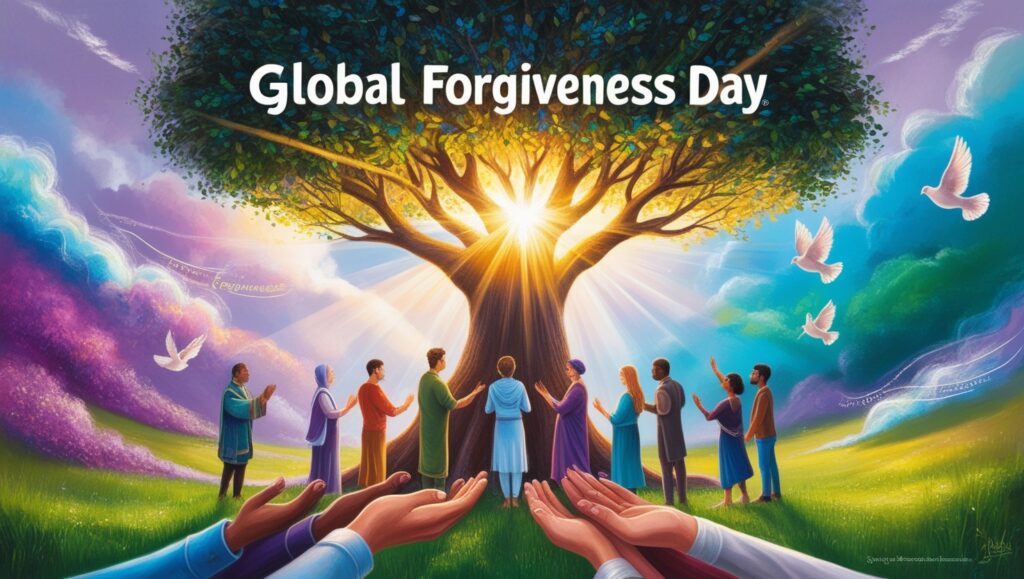

Introduction
Global Forgiveness Day, celebrated annually on July 7th, is a day dedicated to the power of forgiveness. It is a reminder of the importance of letting go of grudges, healing emotional wounds, and fostering compassion. Forgiveness is not just a noble act but a crucial step in personal growth and building healthy relationships. This blog post aims to guide you through the process of truly forgiving someone, providing practical steps and insights to help you on this transformative journey.
Understanding Forgiveness
Forgiveness is often misunderstood. It is not about condoning or excusing harmful behavior; rather, it is about freeing yourself from the burden of anger and resentment. True forgiveness involves a conscious decision to let go of negative feelings towards someone who has wronged you. This process can lead to profound psychological and emotional benefits, such as reduced stress, improved mental health, and enhanced well-being.
The Impact of Holding Grudges
Holding onto grudges can have detrimental effects on your mental and physical health. Studies have shown that chronic anger and resentment can lead to increased anxiety, depression, and even physical ailments like high blood pressure and heart disease. Real-life examples abound of individuals whose lives have been negatively impacted by their inability to forgive. Letting go of grudges is essential for your overall well-being and happiness.
Steps on how to Truly Forgive Someone
- Acknowledgment: Begin by recognizing the hurt and its impact on you. Acknowledge your pain and allow yourself to feel your emotions without judgment.
- Empathy: Try to understand the other person’s perspective. This does not mean excusing their behavior but rather gaining insight into their actions and motivations.
- Expression: Communicate your feelings openly and honestly. This can be done through a conversation with the person who hurt you, writing a letter, or speaking with a trusted friend or therapist.
- Release: Decide to let go of resentment and anger. This step is crucial and often the most challenging. It involves a conscious decision to move past the hurt and focus on your own healing.
- Reconciliation (if appropriate): If the relationship is important to you and the other person is willing, work on rebuilding the relationship. This may involve setting boundaries and taking steps to ensure that past mistakes are not repeated.


Practical Tips and Techniques
- Journaling: Writing down your thoughts and feelings can help you process your emotions and gain clarity on the forgiveness process.
- Meditation and Mindfulness: These practices can help calm your mind, reduce stress, and promote inner peace, making it easier to let go of negative emotions.
- Professional Help: If you find it difficult to forgive, seeking therapy or counseling can provide valuable support and guidance.
- Forgiveness Exercises: Engage in guided activities designed to help you release negative emotions, such as visualization exercises or writing a forgiveness letter (whether you send it or not).
Real-Life Success Stories
Inspiring anecdotes of individuals who have successfully forgiven others can serve as powerful motivators. Consider the story of Mary, who forgave her estranged father after years of resentment. Through empathy and open communication, she was able to rebuild their relationship and find peace. Or the tale of John, who let go of anger towards a former friend, leading to a significant improvement in his mental health and overall happiness. These stories highlight the transformative power of forgiveness and the positive impact it can have on your life.
Challenges and How to Overcome Them
Forgiving someone is not always easy. Common obstacles include lingering resentment, fear of being hurt again, and difficulty in letting go of past grievances. To overcome these challenges, it is important to practice self-compassion and patience. Remember that forgiveness is a journey, not a destination. Take small steps, celebrate your progress, and seek support when needed.
The Ongoing Journey of Forgiveness
Forgiveness is not a one-time event but an ongoing process. It requires continual effort to maintain and nurture. Be mindful of your emotions and practice forgiveness regularly to prevent the return of negative feelings. Celebrate your milestones and acknowledge the progress you have made. By doing so, you will find it easier to sustain a forgiving mindset.
Conclusion
Forgiveness is a powerful tool for healing and personal growth. It allows you to let go of negative emotions, improve your mental and physical health, and build stronger, more compassionate relationships. As we celebrate Global Forgiveness Day, let us embrace the practice of forgiveness not just today, but every day. Begin your journey of forgiveness now and experience the profound transformation it can bring to your life.
Read our latest articles: https://genzfitness.in/
